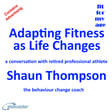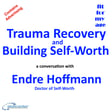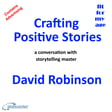
Freedom from Self Sabotage a conversation with Michelle Ward
Our subconscious thoughts sabotage our attempts to live authenically
Michelle Ward, is a Certified Holistic Health Coach, wife and mother of 2 daughters
Michelle focuses on supporting post-empty nest women, adapt to the challenges of rebuilding self after years of putting family first.
The difficulties clients had living their new lifestyles led her to explore the influence that mindset has on our ability to change.
Michelle found that subconscious thoughts control up to 95% of a person’s decisions and often undermine conscious intentions.
In this episode of the Abeceder health and well-being podcast Fit For My Age, Michelle explains to host Michael Millward how our best intentions can be sabotaged by these subconscious thoughts.
Michelle explains the origins of these thoughts, how they can make strange situations feel normal and how they provide us with an excuse for not doing what we really want to.
Michael and Michelle discuss the different ways that people can try to control these thoughts and how these many people successfully change their mindset.
Michelle discusses the ‘elanvital’ approach that she has developed to help people abandon self-sabotaging thoughts and rediscover the vital force of their life.
Find out more about Michael Millward and Michelle Ward at Abeceder.co.uk.
Audience Offers
Proactive Positive Ageing.
We recommend The Annual Health Test from York Test, because knowing the risks early means you can take appropriate actions to maintain good health.
An experienced phlebotomist completes a full blood draw at your home or workplace, so that 39 different health markers can be assessed in a UKAS-accredited and CQC-compliant laboratory.
A Personal Wellness Hub gives access to easy-to-understand results and guidance to help you make effective lifestyle changes.
Visit York Test and use this discount code AGE25.
Fit For My Age is made on Zencastr, because Zencastr is the all-in-one podcasting platform, that really does make creating content so easy.
If you would like to try podcasting using Zencastr visit zencastr.com/pricing and use our offer code ABECEDER.
Travel Members of the Ultimate Travel Club enjoy travelling at trade prices on flights, trains, hotels, holidays and so many other travel related purchases. Use the link to access discounted membership.
Matchmaker.fm If you are a podcaster looking for interesting guests or if, you have something interesting to say Matchmaker.fm is where great hosts and great guests are matched and great podcasts are hatched. Use our offer code MILW10 for a discount on membership.
Being a Guest
If you would like to be a guest on Fit For My Age, please contact using the link at Abeceder.co.uk.
We recommend the podcasting guest training programmes available from Work Place Learning Centre.
We appreciate every like, download, and subscriber.
Thank you for listening.



















